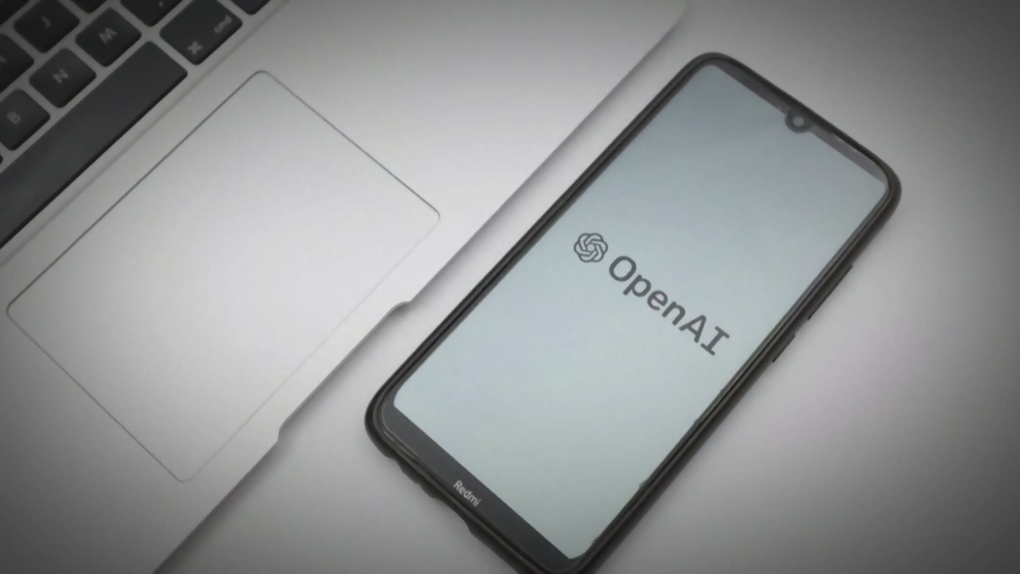ChatGPT, popular AI programs under watch at Waterloo region universities

Artificial intelligence is an emerging technology students have at their disposal, but for the institutions where they learn, it poses a problem which may mean making a new policy to clamp down on potential cheating.
For Wilfrid Laurier graduate Jonathan Seh, he believes technology is nothing to be afraid of.
"ChatGPT, AI, it’s the future right now," he said. "When the internet first came out, everyone was like 'no I don’t want to use the internet, the internet doesn’t make sense, the internet is too much.'"
Seh says the powerful text-based artificial intelligence program, which can produce poems, essays and more, is great to use as another educational tool.
"Instead of a calculator giving you numbers, it’s basically giving you programming languages, it’s giving you poems, it’s giving you history lessons, it’s giving you languages how to speak, it’s giving you essays," Seh said. "Now I use ChatGPT [and] it just makes that even better. It makes it more fast, it makes it more understandable."
However, that use is something the halls of higher learning are having a hard think about.
"Using ChatGPT would be a violation of the academic integrity policy if it wasn’t something that was provided for or allowed by the structure of the assignment,” said David DeVidi, associate vice-president of academics at University of Waterloo.
DeVidi adds that the university is working to form a policy for instructors to manage AI programs like ChatGPT to limit their potential for cheating.
"What we’ve got going on right now is an ad hoc committee that’s going to provide advice to our instructors about how to structure their assignments in ways that don’t encourage the use of tools like this," he said.
That reputation has some students hesitant to use the program.
"My professor told [us] that we should not use this ChatGPT because it takes the codes from a website and if we use it we will get caught," said Conestoga College student Jadin Chopra.
Its use already appears to be widespread among students in Waterloo region.
"When I have essays or something, if I need to clarify the instructions, I’ll put the instructions into ChatGPT and then it’ll just give it to me in an easier way," said Wilfrid Laurier University student Saba Khan.
DeVidi says this may just be the beginning in a wave of new technology both students and teachers need to learn to live with.
"I do think we detect an accelerating trend, so what we’re hoping to do is have a standing committee that will have the right kind of expertise on it," DeVidi said.
CTVNews.ca Top Stories

Aviation experts say Russia's air defence fire likely caused Azerbaijan plane crash as nation mourns
Azerbaijan on Thursday observed a nationwide day of mourning for the victims of the plane crash that killed 38 people and left all 29 survivors injured as speculation mounted about a possible cause of the disaster, with some experts saying that the airliner was damaged by Russian air defence fire.
Police identify victim of Christmas Day homicide in Hintonburg, charge suspect
The Ottawa Police Service says the victim who had been killed on Christmas Day in Hintonburg has been identified.
Teen actor Hudson Meek, who appeared in 'Baby Driver,' dies after falling from moving vehicle
Hudson Meek, the 16-year-old actor who appeared in 'Baby Driver,' died last week after falling from a moving vehicle in Vestavia Hills, Alabama, according to CNN affiliate WVTM.
Boxing Day in Canada: Small retailers fear big shopping day won't make up for tough year
It’s one of the busiest shopping days of the year: Boxing Day sees thousands of people head to malls and big box stores to find great deals. But it's not so simple for smaller shops.
Raised in Sask. after his family fled Hungary, this man spent decades spying on communists for the RCMP
As a Communist Party member in Calgary in the early 1940s, Frank Hadesbeck performed clerical work at the party office, printed leaflets and sold books.
Finland stops Russia-linked vessel over damaged undersea power cable in Baltic Sea
Finnish authorities detained a ship linked to neighboring Russia as they investigate whether it damaged a Baltic Sea power cable and several data cables, police said, in the latest incident involving disruption of key infrastructure.
Police in New Brunswick investigating Christmas Eve sudden death
An unconscious individual was found in the 600-block area of Lancaster Avenue early Christmas Eve morning, and was later pronounced dead at a hospital.
Body found in wheel well of plane at Maui airport
A person was found dead in the wheel well of a United Airlines flight to Maui on Tuesday.
Spending the holiday season alone this year? How to make the most of it
Spending the holidays alone can feel lonely or empty, but it doesn't have to be that way.































